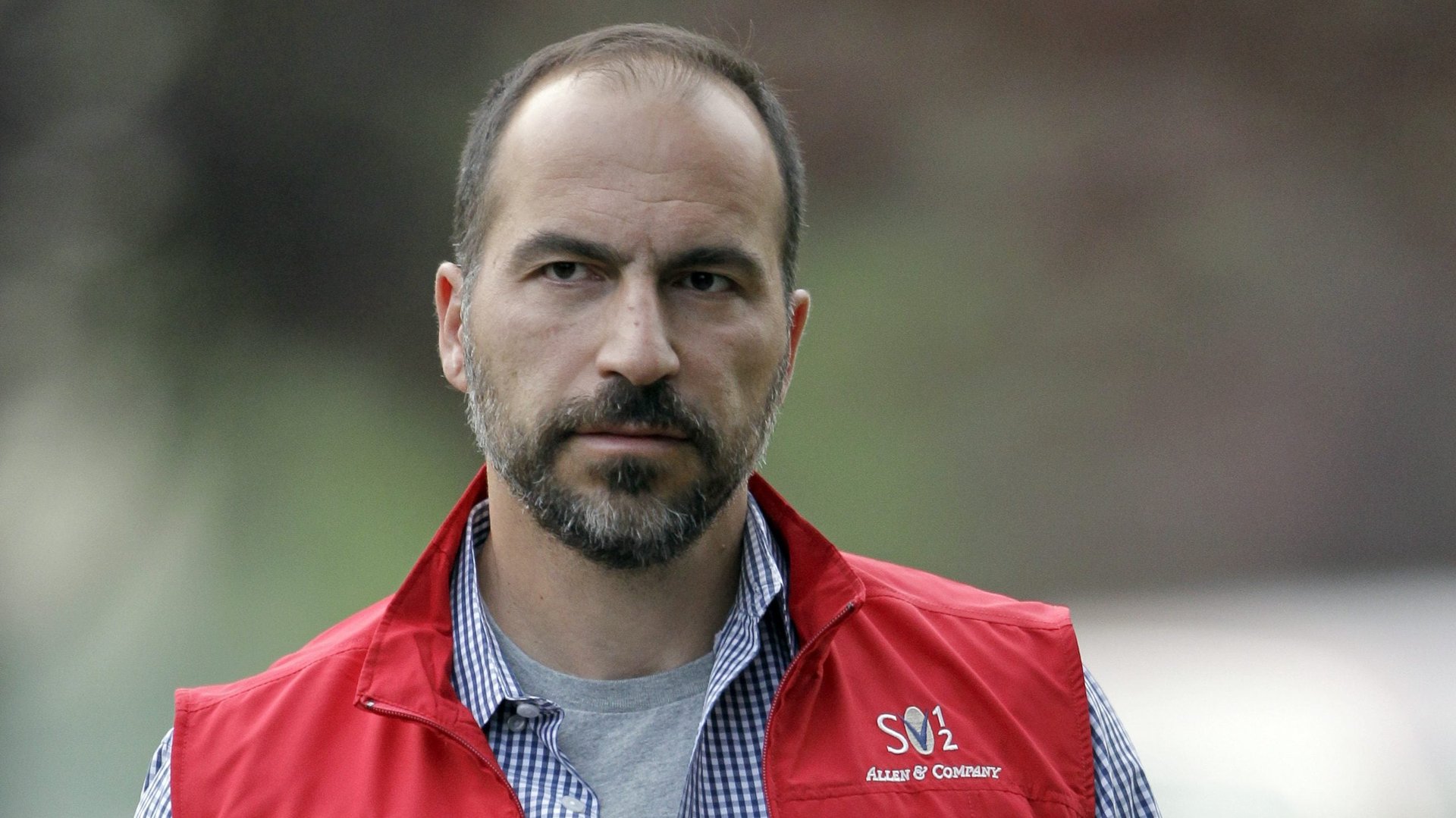Uber’s new CEO is ready to clean up the company’s messes—if Travis Kalanick will let him
In his second week as Uber’s chief executive, Dara Khosrowshahi met with drivers in San Francisco and had breakfast with groups of Uber employees concerned about diversity and company culture. In his fourth week, Khosrowshahi sat down with female engineering leads and other Uber women. In his fifth week, he met with more drivers, this time in London, where he had flown to confer with local regulators who in late September declined to renew Uber’s license to operate.


In his second week as Uber’s chief executive, Dara Khosrowshahi met with drivers in San Francisco and had breakfast with groups of Uber employees concerned about diversity and company culture. In his fourth week, Khosrowshahi sat down with female engineering leads and other Uber women. In his fifth week, he met with more drivers, this time in London, where he had flown to confer with local regulators who in late September declined to renew Uber’s license to operate.
Khosrowshaki posted upbeat messages and scenes from these meetings on Twitter, where he appears surrounded by beaming Uber drivers and employees. On Oct. 4 he tweeted a photo of a letter mailed to an Uber driver hub in Toronto by user Casey O’Connor, who thanked an UberEats driver for correctly delivering food that O’Connor had ordered to the wrong address. “We can never forget that drivers represent the heart of our service,” Khosrowshahi wrote. “#UberEATS #nicesurprise.”
Travis Kalanick, Uber’s cofounder and his predecessor as CEO, who famously called Uber “boober” and screamed at a driver, was never able to strip the bro-iness from his manner. His old tweets include comments like,”First couple making out in my uberX… #ceoUberXing.” His more recent ones are a mix of updates on Uber’s app and products, and photos of business trips and social outings, like a run-in with New England Patriots quarterback Tom Brady at the Kentucky Derby. There are several references to Alexander Hamilton.
If Uber employees hoped Khosrowshahi’s appointment would end the leaks and infighting that plagued Uber throughout its CEO search process, they may be mistaken. Instead, Uber has entered a fresh struggle, between old power and new.
Kalanick last week succeeded in getting two of his picks as new directors appointed to the board, shortly before Uber voted to proceed with a SoftBank investment that expands Uber’s board from its current 11 seats to 17. The board also stripped “super-voting” rights from Kalanick and other early board members, and implemented a “one share, one vote” policy. It set a 2019 IPO deadline for Uber, an event Kalanick once said would come “as late as humanly possible.”
It may look like Kalanick’s influence will thus be diluted, but that’s a difficult calculus. Two of the six new seats will go to SoftBank and the other four are meant to be independent, with one of those seats going to a new chairman to be picked by a committee consisting of Uber co-founder Garrett Camp, David Trujillo, who represents private equity firm TPG, and Nestle exec Wan Ling Martello.
How will the other three new directors be chosen? Two of the four will be chosen by Kalanick, director Matt Cohler, who represents VC firm Benchmark, and the new chairman. The new chair and the two directors chosen by Kalanick and Cohler get to pick the final new director. That means Kalanick gets a hand in picking at least three of the six new directors coming on board, bringing his total influence on the board to at least six, including himself.
The loyalties of the other 11 directors aren’t entirely clear. Cohler’s firm Benchmark has been Kalanick’s loudest opponent, helping force his resignation as CEO in June and then suing him over board seats in August. David Bonderman, the TPG investor who preceded Trujillo on the board, had reportedly clashed with Kalanick over the hiring of top executives. Media mogul Arianna Huffington was brought on by Kalanick in April 2016 and has repeatedly defended him, but also reportedly advised him to consider stepping aside. Camp caught everyone off guard in early August when he sent a companywide note saying Kalanick would not return as CEO.
And what of Khosrowshahi? When named, he seemed like the Goldilocks candidate, the steady leader whose position on the “Travis problem” remained to be seen. He and Kalanick hugged on stage when they spoke in front of the first all-hands meeting.
Then Kalanick went behind Khosrowshahi’s back with his surprise appointment of two board directors, a move the new CEO called “disappointing.” Ahead of Uber’s vote to proceed with the SoftBank deal, Khosrowshahi reportedly proposed slashing the number of board seats controlled by Kalanick and stripping super-voting rights. He’s also been critical of Kalanick’s reign at Uber, warning in a recent staff memo, “there is a high cost to a bad reputation.”
Khosrowshahi seems ready to fix that—if Kalanick will let him.